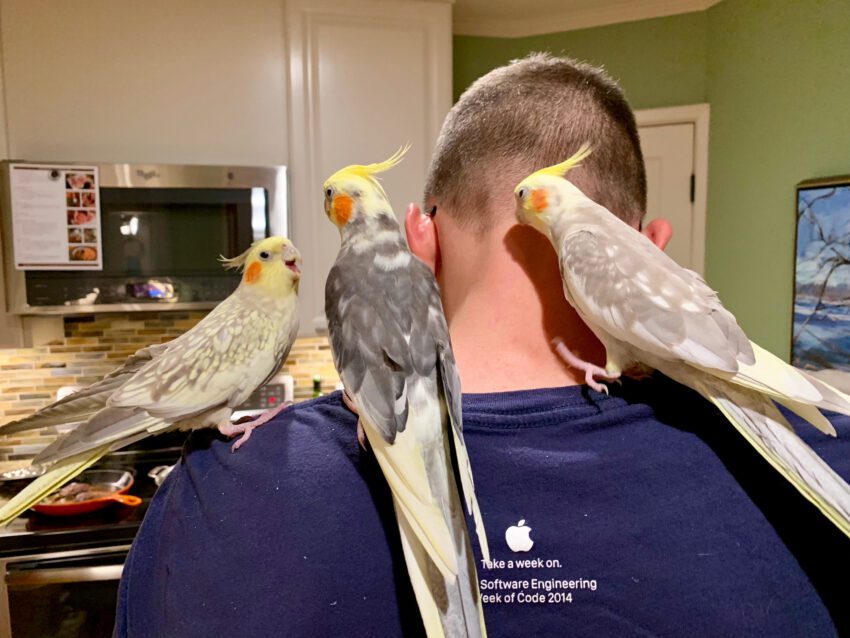
What’s it like to have a pet bird?
[Note that I recently wrote a much more comprehensive guide called: So you’re thinking of getting a parrot]
I used to breed cockatiels starting in the early 1980s, selling over a hundred birds a year. I used to advertise them in some town papers with my phone number.
When people called, I would find out whether this would be their first bird. If so, I would give them my standard speech to make sure they knew what they were getting into. Maybe 25% of the time, they would decide to think about it more before buying a bird and in some cases they would decide a bird was not for them.
Here’s what I would tell them:
- Birds are really messy! There’s really no getting around it. Feather dust, feathers when moulting, seed strewn everywhere, chewing on everything they can find, and they seem to find a way to poop in impossible locations.
- With very rare exceptions, birds don’t like to be pet like dogs, cats, or rabbits. Even head scratches are not something all birds get into.
- Birds are not appropriate for small children who could squeeze and injure them. They are more delicate than more common pets.
- Some birds can be loud, even small birds like cockatiels and conures. This behavior can be trained away, but it requires patience and understanding.
- Birds require a lot of patience to get comfortable with people as they are naturally afraid of new things. Some will be very tame immediately, but others might take months of effort.
- Birds do bite, but typically only when they are cornered.
- Birds may not be the most appropriate first pet, especially with children. You might consider easy to care for animals like guinea pigs and rabbits to practice taking care of an animal.
- Birds can live a very long time, especially larger birds that can live 50 years or more. Consider whether you want to make that type of commitment. Something like a budgie that lives 5-10 years can be a good first bird.
Now I volunteer at a shelter and bird rescue, so it’s even more important to set expectations. While it’s important to find adoptive homes, you want a home where the bird is likely to succeed as a pet. Birds that feel abandoned multiple times can experience trauma and that can be difficult to recover from.